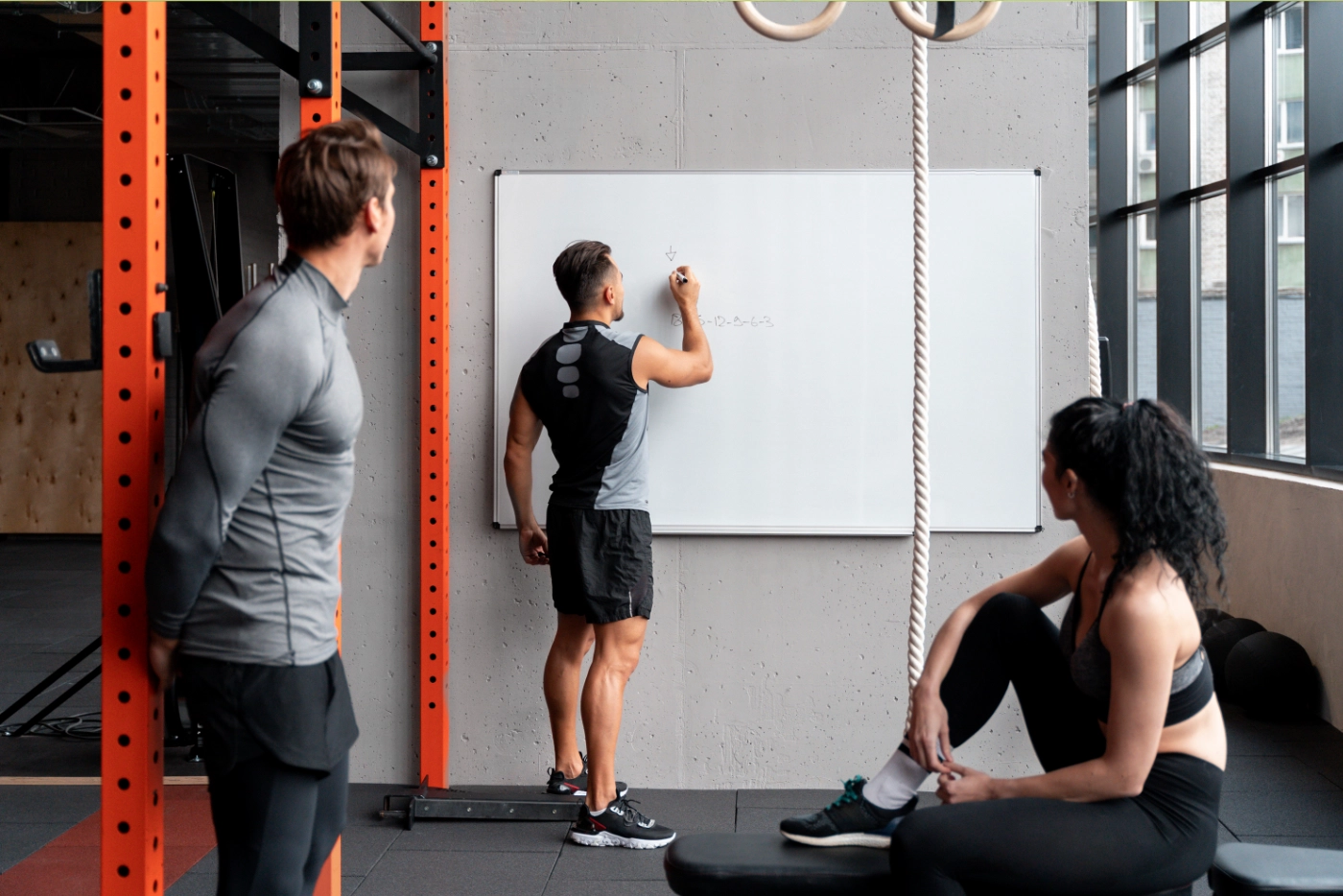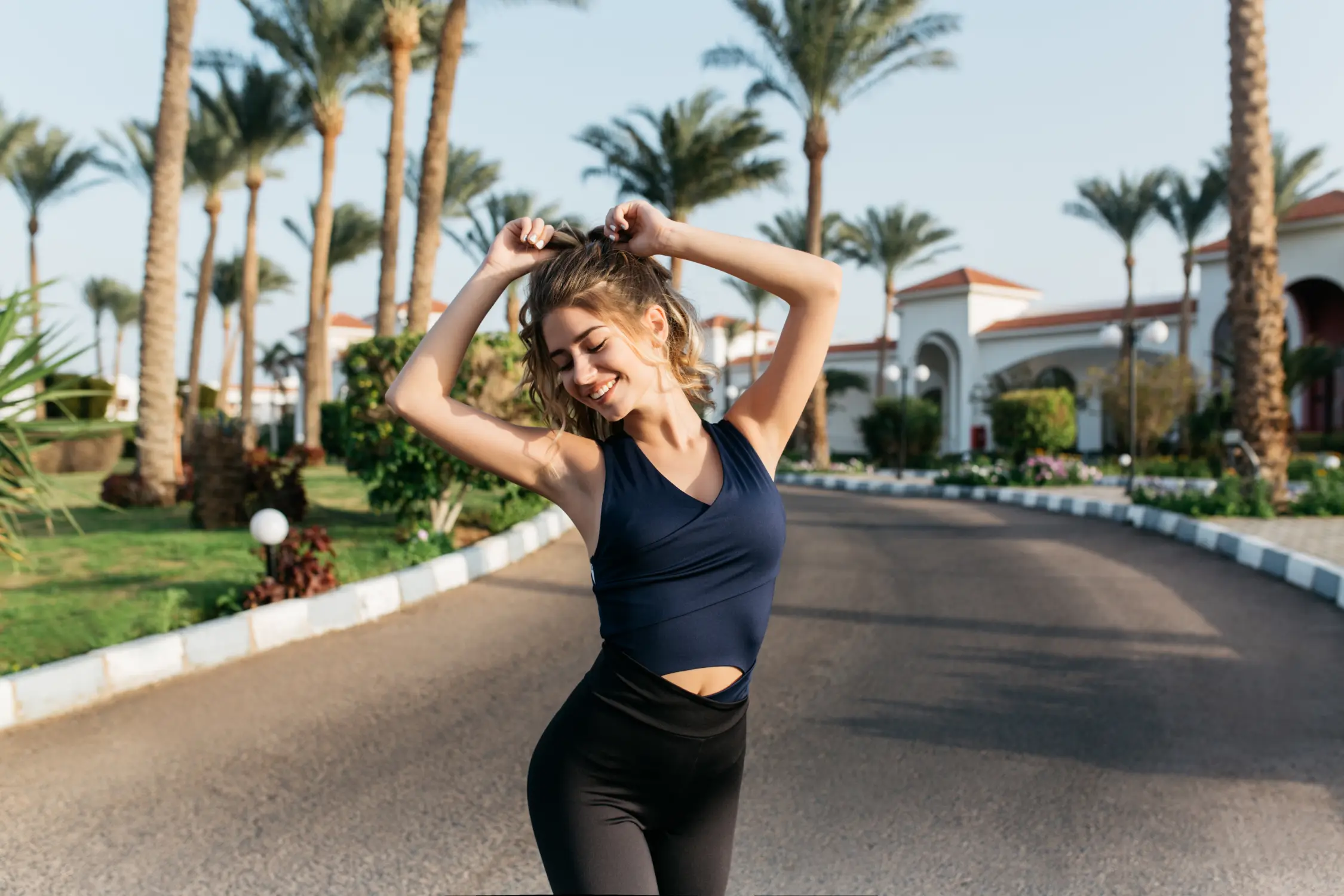Healthy Living in Dubai: Wellness Tips and Fitness Trends
Welcome to Dubai—where skyscrapers gleam, the desert sun energizes, and wellness is a way of life. As a Sports Science graduate and certified personal trainer with over 14 years of experience, I’ve witnessed Dubai's transformation into a global wellness hub firsthand. In this article, I’ll walk you through the science-backed trends, government initiatives, and everyday tips that make healthy living in Dubai not just achievable—but exciting.

Why Dubai Is the Perfect Wellness Playground
Dubai’s fast-paced lifestyle demands peak physical and mental performance. Thankfully, the city delivers on both fronts. Whether it's sunrise yoga on Kite Beach or HIIT in a cutting-edge studio in Business Bay, Dubai embraces fitness with flair. Supported by government initiatives, advanced wellness infrastructure, and a growing fitness community, this is the city where your health goals get a luxurious twist.
Government-Backed Health Initiatives Fueling Wellness
Dubai Fitness Challenge (DFC): This 30-day event encourages residents to get active for at least 30 minutes a day. Held annually, it transforms Dubai into an open-air gym with events, challenges, and free classes across the city. Regular physical activity reduces stress, improves cardiovascular health, and boosts mood (Hassmén et al., 2000). Source: Dubai Fitness Challenge
Healthy Restaurant Initiative: Through this initiative, the Dubai Health Authority promotes nutrient-dense, low-calorie options in restaurants. Eating out can still align with your health goals. Diets rich in whole foods are linked to improved metabolic health and weight management (Slavin, 2013). Source: Dubai Health Authority
SEHHI Programme: This Abu Dhabi-born initiative inspires schools and workplaces to prioritize health through nutritious meals and regular movement. Community-based health programs are proven to improve long-term health outcomes (Middleton et al., 2013). Dubai is increasingly adopting this model. Source: Abu Dhabi Public Health Centre
You Make the Change Campaign: A nationwide initiative that empowers people to make incremental, sustainable changes—like walking more and reducing sugar intake. Behavioral changes, even small ones, significantly reduce chronic disease risk (Hill et al., 2003). Source: UAE Ministry of Health and Prevention
2025’s Top Fitness Trends in Dubai
High-Intensity Interval Training (HIIT): Short bursts of intense activity with rest periods in between can elevate metabolism and VO2 max in just 20 minutes (Gibala et al., 2012). Popular venues: GymNation, CRANK. HIIT Dubai, fitness classes Dubai
Group Fitness & Community Workouts: Zumba, kickboxing, CrossFit—group classes build consistency through accountability. Social support boosts motivation and long-term adherence (Burke et al., 2006). Try: FitnGlam, F45, KO8 Fitness. Group fitness Dubai, Zumba Dubai
Outdoor Fitness Experiences: From desert bootcamps to JBR runs and Al Qudra cycling, Dubai’s climate invites year-round outdoor activity. Outdoor exercise improves mental well-being and reduces cortisol (Thompson Coon et al., 2011). Outdoor fitness Dubai, running Dubai
Functional Training: Train the way you live—with compound movements like squats, lunges, and kettlebell swings. Functional training enhances mobility and reduces injury risk (McGill, 2010). Popular Spot: The Warehouse Gym. Functional training Dubai, strength training Dubai
Mind-Body Workouts: Yoga and Pilates improve flexibility, posture, and stress levels. Integrating mindfulness into physical activity enhances both mental and physical outcomes (West et al., 2004). Visit: Zen Yoga, The Hundred Wellness Centre. Yoga Dubai, Pilates Dubai
Virtual Fitness & App-Based Coaching: Apps like Les Mills On Demand and Fitbit Premium offer guided workouts and progress tracking—anytime, anywhere. Virtual coaching boosts consistency by 20% (Fukuoka et al., 2019). Virtual fitness Dubai, online workouts Dubai

Science-Backed Tips for Thriving in Dubai
Hydrate Intelligently: With average daytime temps reaching 40°C, dehydration is a real concern. Aim for 2.7–3.7L of water daily (Sawka et al., 2015). Add citrus, mint, or cucumber for a natural electrolyte boost.
Eat Whole, Colorful Foods: Colorful produce is rich in phytonutrients that reduce inflammation and promote longevity (Joseph et al., 2014). Shop smart at Ripe Market or order organic via Kibsons or Talabat.
Make Movement a Daily Habit: According to the WHO, adults should aim for 150–300 minutes of moderate activity weekly (WHO, 2020). Mix cardio, strength, and flexibility routines for a holistic approach.
Prioritize Mental Recovery: Too much screen time is linked to increased anxiety and disrupted sleep (Twenge & Campbell, 2018). Try walking in nature, meditating, or reading to recharge.
Embrace Mindfulness: Mindfulness practices reduce anxiety, improve focus, and enhance emotional well-being (Keng et al., 2011). Apps like Headspace or Calm can be your daily dose of zen.
Why Dubai’s Wellness Scene Works
Dubai isn’t just about aesthetics—it’s about optimized living. With modern infrastructure, inclusive government initiatives, and a culturally diverse fitness scene, it’s one of the best cities to build long-term health habits. From boutique gyms to open-air workouts, wellness in Dubai is accessible, engaging, and constantly evolving.
As a long-term Dubai resident and certified personal trainer, I’ve seen how small, science-backed changes can lead to transformative results. Whether you’re a beginner or fitness veteran, Dubai has the tools to help you succeed.
Ready to Start Your Wellness Journey?
Explore More Tips: Dive into my blog for evidence-based fitness and nutrition strategies.
Follow Me on Instagram: Daily tips and transformations at @abooyeah.
Book a Consultation: Design your personal wellness roadmap with me. Contact Me Now.
Looking for the best personal trainer in Dubai? Start your transformation with expert coaching tailored to your needs. Get Started Now. Explore popular Dubai Personal Training categories

About The Author
Abooyeah is a Sports Science graduate and certified personal trainer with over 14 years of hands-on experience in fitness, nutrition, and performance coaching. Based in Dubai, UAE, he specializes in evidence-based diet planning and sustainable health transformations.
References
- Burke, S. M., et al. (2006). Group versus individual approach? A meta-analysis of the effectiveness of interventions to promote physical activity. Sport & Exercise Psychology Review.
- Fukuoka, Y., et al. (2019). Mobile technology for physical activity promotion. American Journal of Preventive Medicine.
- Gibala, M. J., et al. (2012). Physiological adaptations to low-volume, high-intensity interval training. Journal of Physiology.
- Hassmén, P., et al. (2000). Physical exercise and psychological well-being. Scandinavian Journal of Medicine & Science in Sports.
- Hill, J. O., et al. (2003). Obesity and the environment. Science.
- Joseph, S. V., et al. (2014). Berries: Anti-inflammatory effects in humans. Journal of Agricultural and Food Chemistry.
- Keng, S. L., et al. (2011). Effects of mindfulness on psychological health. Clinical Psychology Review.
- McGill, S. (2010). Core training: Evidence translating to better performance and injury prevention. Strength & Conditioning Journal.
- Middleton, K. R., et al. (2013). Community-based interventions for obesity prevention. Obesity Reviews.
- Sawka, M. N., et al. (2015). Human water needs. Nutrition Reviews.
- Slavin, J. (2013). Fiber and prebiotics: Mechanisms and health benefits. Nutrients.
- Thompson Coon, J., et al. (2011). Does participating in physical activity in outdoor natural environments have a greater effect on physical and mental wellbeing? Environmental Science & Technology.
- Twenge, J. M., & Campbell, W. K. (2018). Associations between screen time and lower psychological well-being. Preventive Medicine Reports.
- West, J., et al. (2004). Effects of Hatha yoga and African dance on perceived stress. Ethnicity & Disease.
- World Health Organization. (2020). Guidelines on physical activity and sedentary behaviour.
Related articles

8-Week Beginner Fat Loss Program: Transform Your Body in Dubai

The Ultimate Guide to Finding the Best Personal Trainers in Dubai

Beginner’s Guide to Fitness in Dubai: What Every Newcomer Should Know
HOW MUCH LONGER WILL YOU HOLD BACK FROM BECOMING YOUR BEST SELF?
Your ideal physique isn’t out of reach — it’s just waiting on your commitment. The difference starts with one decisive move.
Personal Training FAQs
Get answers to common questions about working with me as your personal trainer.
Top 2025 fitness trends in Dubai include HIIT, group fitness like Zumba, outdoor workouts at JBR, functional training, yoga/Pilates, and virtual fitness apps like Les Mills On Demand. These boost metabolism, flexibility, and mental well-being
Aim for 2.7–3.7L of water daily, as Dubai’s 40°C heat increases dehydration risk (Sawka et al., 2015). Add citrus or mint for electrolytes. Carry a reusable bottle during outdoor activities like running at Al Qudra.
Dubai’s Healthy Restaurant Initiative promotes nutrient-dense menus at places like DIFC eateries. Opt for colorful fruits and veggies from Ripe Market or Kibsons, rich in phytonutrients
The Dubai Fitness Challenge (DFC) is a 30-day annual event encouraging 30 minutes of daily activity. Register for free classes, runs, or Zumba at dubaifitnesschallenge.com.
Yes, if you train early morning or evening, stay hydrated, and wear breathable clothing. Outdoor workouts like yoga at Kite Beach helps to reduce stress. Consult a trainer for safe plans. Book your sessions For Outdoor Training.
Group classes like F45 or FitnGlam’s Zumba enhance motivation through social support, improving adherence (Burke et al., 2006). They’re fun and build community, perfect for Dubai’s vibrant fitness scene. Explore Group Exercise Training.
Absolutely! Use bodyweight exercises, resistance bands, or virtual apps like Fitbit Premium at home. Outdoor options like JBR runs or desert bootcamps work too. Virtual coaching boosts consistency (Fukuoka et al., 2019).
Mindfulness via yoga at Zen Yoga or apps like Calm reduces anxiety and enhances focus (Keng et al., 2011). It’s ideal for Dubai’s fast-paced lifestyle.
Programs like DFC, Healthy Restaurant Initiative, SEHHI, and You Make the Change promote exercise and nutrition. Community interventions improve health outcomes.
Aim for 150–300 minutes of moderate activity weekly, like cycling or HIIT, per WHO guidelines (WHO, 2020). Mix cardio, strength, and flexibility for balance.




